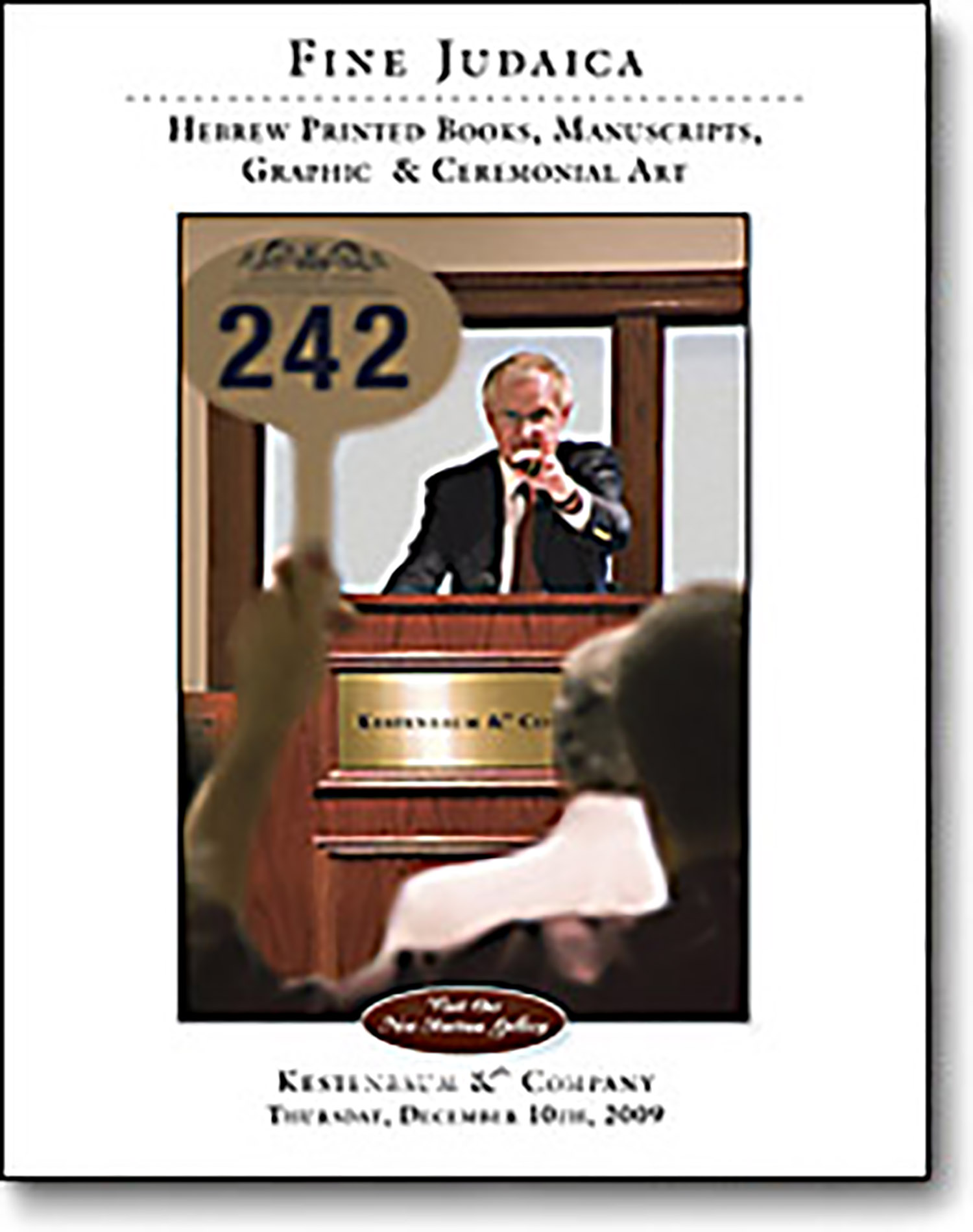(Gerondi, sic.) - (Attributed to). Ma’arecheth Ha’Elo-huth [Kabbalah]. With commentary by the Italian mystic Judah Chayat and another anonymous commentary P"Y

AUCTION 47 |
Thursday, December 10th,
2009 at 1:00
Fine Judaica: Hebrew Printed Books, Manuscripts, Graphic & Ceremonial Art
Lot 241
PERETZ BEN ISAAC HAKOHEN.
(Gerondi, sic.) - (Attributed to). Ma’arecheth Ha’Elo-huth [Kabbalah]. With commentary by the Italian mystic Judah Chayat and another anonymous commentary P"Y
Ferrara: Abraham ibn Usque 1557
Est: $1,200 - $1,800
PRICE REALIZED $1,300
One of the most significant works on the Kabbalah due to its systematic treatment of all relevant themes in earlier literature. Its contribution to speculatve mystic theory in pre-Zoharite Kabbalistic literature, is the increased symbolism of the Sephiroth. The author quotes a multitude of names by which each Sephirah is known, each signifying a differing function. He also develops the “Adam Kadmon” theory, whereby the likeness of the order of the Divine Powers of the Sephiroth to the human body is explored.
Judah Chayat’s introduction contains a fascinating autobiographical account of the expulsion of Jews from Portugal, describing his own trials and tribulations including capture by pirates. He also describes his suffering at the hands of the Arabs while in the Barbary States. His wife died of hunger while he himself toiled for a “thin slice of bread not fit for a dog.” He eventually reached Mantua, where he composed this work with the encouragement of Joseph Ya'avetz
